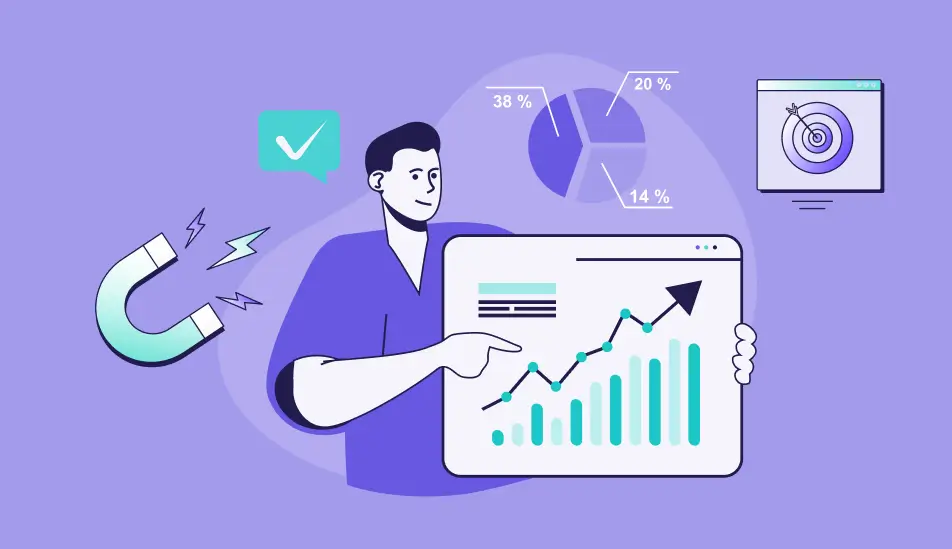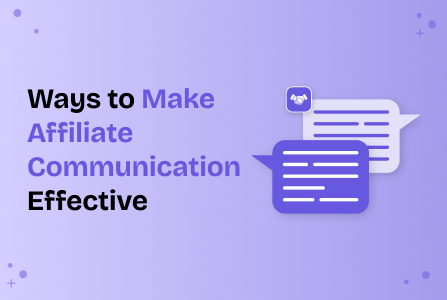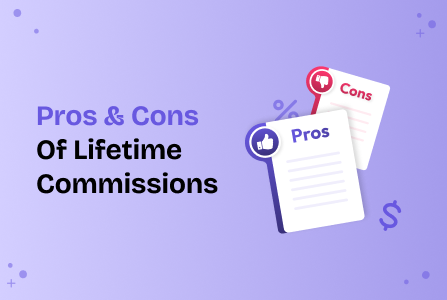Is Affiliate Marketing Worth It? (A Look at Earning Potential in 2025)

Real money with affiliate marketing in 2025? Exactly! Let us make it straight to the point.
The success of affiliate marketing largely hinges on three key factors:
1) the initial popularity of the niche you choose, 2) your skills and knowledge, and 3) the amount and quality of content you produce. These principles are interconnected, yet the first one plays a crucial role.
The first one, if big, guarantees the number of potential clients is also big enough. Next, you need the experience so that you can securely trust your gut. And finally, you need a product that will sell. And this product is your content.
But starting in 2025, you might be feeling like you are half a year late to the party…
- Google puts websites and pages without affiliate links higher in search results.
- Potential buyers turn to AI for recommendations, stealing the trust from traditional blogs and reviews.
- Big platforms often update policies to close low-earning affiliate accounts, wiping out past efforts of affiliate marketers.
But you still want to try your luck with affiliate marketing? Let’s consider all the pros and cons!
Pros & Cons of Affiliate Marketing in 2025
Let’s start with the classics and today’s advantages and advantages.
| Pros of Affiliate Marketing in 2025 | Cons of Affiliate Marketing in 2025 |
| Many customers still want a personalized review, as well as many are searching for the influencer’s option. | AI is stealing the show in 2025, while more and more customers find it easier to refer to artificial intelligence software for recommendations. |
| You create content once, and it has the potential to generate passive income for years to come. | Affiliate content creation takes a significant amount of time, and you can’t always predict if it will transform into money. |
| You promote a product or service, but don’t do any customer support. | You need to do a lot of work to diversify your resources and partners. |
| As markets expand, their marketing needs increase, making affiliate marketing increasingly valuable due to its personalized and high-quality nature. | Frequent SEO and affiliate platform rule changes heavily impact affiliate marketing. |
| With the rise of subscription services, affiliates can earn recurring commissions. | Inflation, market fluctuations, and reduced consumer spending in some regions can impact sales and conversions. |
Affiliate Revenue Potential in 2025

Taking into account all the issues we’ve mentioned, the potential revenue from affiliate marketing depends on:
- The niche’s audience behavior.
- product price points.
- platform/website engagement.
In very simple terms, this means, your affiliate links will sell better on the platform/site that has a lot of traffic (people visiting your site) and comfortable product pricing (preferably discounted).
What Are the Niches to Consider for Affiliate Marketing?
As we’ve highlighted at the beginning, the more profitable and diverse the market is, the more chances you have to earn as an affiliate marketer.
Moreover, it’s generally recommended to choose industries you have experience with and are passionate about (so that you don’t lose focus and interest too quickly).
But if you are asking yourself which niches exactly can help you get started earning, these are the leaders:
1. Health and wellness
Fitness equipment, supplements, or online health programs are a growing trend, highly supported by the Zoomer’s generation. Product reviews and tutorials on YouTube, TikTok, or even classic blog posts – all can be highly needed.
2. Fashion and beauty
Instagram & TikTok, which are themselves allowed to integrate purchase links, are highly e-commerce focused networks. Viewers trust influencers for style recommendations and are very prone to making impulse purchases. But it takes time to build a brand that will be trusted.
3. Technology and gadgets
While a t-shirt is more of an impulsive purchase, people research extensively before buying tech products. You can start a YouTube channel or a teaching blog with in-depth tutorials and expert comparisons. High-ranking reviews often lead to direct purchases and sweet commissions.
4. Finance and investing
A channel in Telegram, blog posts, or videos on YouTube are the best platforms to create most revenue-generating content types, such as tutorials and case studies. Many financial affiliate programs offer large commissions (e.g., brokerage account signups).
5. Travel
Travel services like flights, hotels, and tours generate high affiliate commissions but creating such content requires insisting visuals, such as professional videos and images.
When Is Affiliate Marketing Worth It and When Not?
But you surely want more details.
When is Affiliate Marketing Not Worth It?
Let’s illustrate those cases with examples.
- You have just an hour a day and want to commit yourself to in-depth tech gadget reviews. You will basically need a few weeks to finish one review. From a long-term perspective, you can count on a very small passive income.
- Your content plan includes generic product comparisons and reviews that are already there on the internet. Without a unique angle-like targeting (specific age groups, body goals), you will have low traffic and almost no commission earnings.
- Your audience isn’t ready to buy. Say you’re passionate about DIY crafts and attract an audience of hobbyists who love free tutorials. However, most of your visitors come for inspiration and aren’t interested in spending money on crafting supplies.
- ‘Thin affiliation’ is not worth it, since Google won’t give value to such pages.
When is Affiliate Marketing Worth it?
Affiliate marketing is definitely worth it when…
- You are able to build professional visual credibility (videos, style, tone of voice, charisma), especially in niches like wellness or finance and investing.
- You are not going to work with just one product/brand or use one affiliate software.
- You have your independent website, e.g. WordPress, and multiple registrations with different affiliate systems.
- You learn and understand technical SEO terms for affiliate marketing (e.g. ‘thin affiliate’) and links.
- You use an intelligent affiliate marketing software that can automate and optimize many tasks for you, saving you time and resources.
- You have enough time (e.g. 5 hours a day), motivation and commitment to produce content.
What Are Extra Steps to Get Prepared?
As an affiliate marketer, in 2025 you can’t do the same thing over the years and flourish; you want to always improve and, thus, earn a better passive income.

That’s why we can’t skip these recommendations to have more peace of mind:
- Be aware of current news about the platforms you use for affiliate marketing. For example, if you plan to create ads on TikTok, stay updated on the ongoing battle over a potential TikTok ban in the USA. If the platform’s 170 million in the US users suddenly switch to another platform (such as Xiaohongshu, which is currently rumored to be gaining traction), you’ll want to be prepared.
- Learn the terms and conditions of the platforms you are going to use in terms of inclusion of affiliate links, e.g., ask ‘can I use Amazon affiliate links on Medium’, etc.
- Hone your analysis, research, and collaboration/communications skills.
Concluding: Is Affiliate Marketing Worth It in 2025?
As an affiliate marketer, you are always playing on someone else’s field, highly sensitive to the weather conditions, audience preferences, and sponsorship dynamics. The rules may change any time, you either gain or lose every day. However, as long as you’re in the game, you may give it your absolute best performance.






